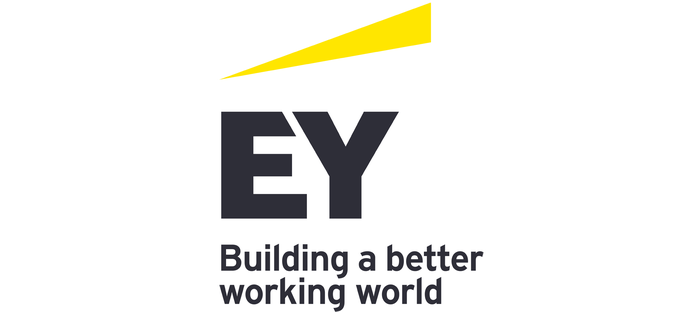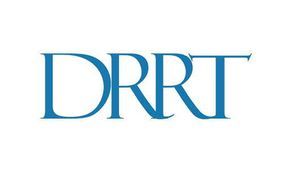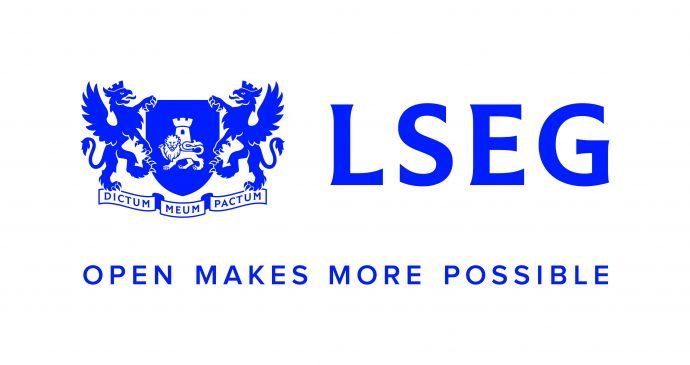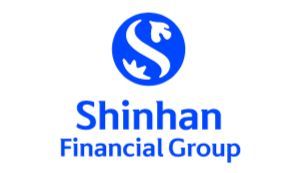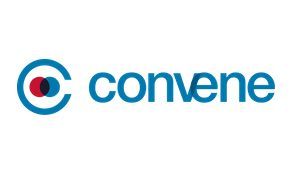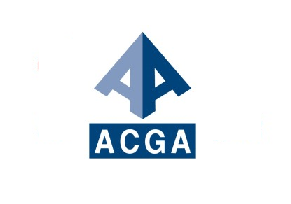
ICGN Seoul Conference
About the event
In Asia’s large and diverse markets, it is essential for investors to immerse themselves in the local culture via an on-the-ground presence. Therefore ICGN is delighted to be holding our Seoul Conference on 5 & 6 October 2022, hosted by Korea Exchange (KRX) & Korea Institute of Corporate Governance and Sustainability (KCGS).
Hosted by
Premier Partner
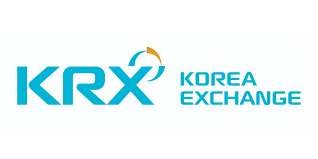
Registration for this event is now closed.
We look forward to welcoming local and international delegates across this two-day event, which will help keep attendees informed of the latest corporate governance developments with a focus on Asia, but giving a global perspective. The event will provide best practice guidance, updates from policy makers and insights from leading speakers in both industry and academia, in a format that maximises networking opportunities with the senior professionals in attendance. This is an in-person event.
Click for more information about Korea Exchange & Korea Institute of Corporate Governance and Sustainability.
For our registration terms and conditions click here
Speakers
Agenda
-
5 October 2022 - Day 1
09.00 - 09.30Registration09:30 – 09:40Conference Welcome- Kerrie Waring, CEO, ICGN
09:40 – 09:50Host Welcome Remarks09:50 – 10:00Opening Keynote RemarksKim So-young, Vice-Chairman, Financial Services Commission
10:00 – 11:00Governance of Geopolitics in a New World OrderAs the world begins to emerge from the Covid pandemic, capital markets are scrambling to navigate a new world order. Russia’s war against Ukraine, tensions between China and the US, and Brexit have led to geopolitical disintegration and weakened global economic ties. Democratic and autocratic regimes tussle for control, and while concerns about political risk and rule of law have traditionally focused on Russia, China and other emerging markets, the US has also come under scrutiny given the challenges to its own democratic principles emerging in 2021 with attempts to invalidate the 2020 election. Our interdependent global economy is unwinding as cross-border relationships dissolve, supply chains localise, and energy reserves entrench as companies strive to manage efficiencies, mitigate risk, and ensure resilience. New relationships have been formed, out of necessity, to collectively work to address these concerns, bringing the profiles of several counties into sharper focus. This has systemic impacts across the investment chain and longer-term outcomes for sustainable economies, societies, and the environment. What does a more divided world mean for the global economy? How do we encourage greater political harmony? Where do economics and geopolitics collide and what role does corporate governance and investor stewardship play?
Introductory Remarks:
- Ambassador Norman Eisen (ret.) Senior Fellow, Brookings & Chair, States United Democracy Center, USA
- David Atkin, CEO, PRI, UK
- Ronald Wuijster, Member of the Executive Board, APG Group & Chairman of the Board, APG Asset Management, Netherlands
- Jane Diplock, Vice President, Abu Dhabi Global Market, United Arab Emirates
- Chair: Patrick Dunne, Boardelta, UK
11:00 – 11:30Networking Refreshments11:30 – 12:30New Era for Sustainability Reporting StandardsIn 2021 several important developments took place in the harmonisation of sustainability reporting standards - the establishment of the International Sustainability Standards Board, a cooperation agreement between the European Financial Reporting Advisory Group and the Global Reporting Initiative, and national efforts to expedite reporting aligned with the Taskforce for Climate Related Financial Disclosures. What are the challenges to achieving a global baseline for sustainability reporting standards to avoid regional fragmentation? To what extent can we consolidate definitions of materiality? How should companies determine which standard to follow? What do investors view as being high quality sustainability reporting? How are auditors coping in providing adequate assurance?
- Tom Seidenstein, Chair, International Auditing and Assurance Standards Board (IAASB), USA
- Mark Babington, Executive Director of Regulatory Standards, Financial Reporting Council (FRC), UK
- Tae-Young Paik, Board Member, ISSB, South Korea
- Susanne Stormer, Partner, ESG & Sustainability Services Leader, PwC Denmark & Board Member, ICGN
- Chair: Dr Yong Sik Ok, Chair and Program Director, Associations of Pacific Rim Universities (APRU) Sustainable Waste Management Program, South Korea
12:45 – 13:45Hosted Sessions- Session 1: Building trust and confidence in sustainability reporting, hosted by EY
Investors and other stakeholders are increasingly looking to use value-relevant sustainability information for decision-making. In turn, there is growing demand for independent assurance to contribute towards strengthening credibility and market confidence. What is the current global state of play with respect to assurance requirements? What conditions need to be in place to enable provision of independent assurance for sustainability disclosures? To what extent can assurance address concerns around greenwashing? What are some of the key challenges faced by assurance service providers? - Joanne Henstock, Associate Partner, EY Australia Climate Change and Sustainability, Australia
- Tae-Young Paik, Board Member, ISSB, South Korea
YK Park, Global Responsible Investment & Governance, APAC, APG Asset Management, Hong Kong S.A.R., China
Bangsil Lee, SK hynix, Head of ESG Strategy and Reporting, South Korea
- Session 2: Global ownership in 2022, hosted by MSCI
The nature of corporate ownership has changed considerably since the global financial crisis. The percentage of companies with controlling shareholders has increased dramatically, while at the same time certain large institutional investment managers have become increasingly more important. Our panel will provide fresh, new insights into what ownership looks like in the 2020s, and how these new ownership trends have impacted investors’ governance risks. We will also explore the dominant ownership trends in the APAC region specifically, and how they are likely to affect both local and global companies and their investors. Miranda Carr, MSCI’s Global Head of Applied ESG & Climate Research, Singapore
- Dong Seok Lee, Partner & Head of Strategy Consulting Group, KPMG, South Korea
- Nana Li , Head of Sustainability & ESG, Asia-Pacific at Impax Asset Management, Hong Kong S.A.R., China
- Joon Hyug Chung, Assistant Professor at Seoul National University School of Law, South Korea
- Moeko Porter, Vice President, ESG & Climate Research, APAC at MSCI, Japan
- Session 3: Shareholder Activism Tools – Litigation as a tool to encourage sound corporate governance practices, hosted by DRRT Sophisticated investors have various tools at their disposal to communicate with directors and officers of companies. However, when none of those options result in a correction of bad behavior or when fraud has already occurred, investors can a suit to recover from damages and send a strong message to companies. The US market has been providing investors to file in class actions or opt out if they feel particularly harmed. However, since the Morrison decision in 2010, there has been a growth of international cases. The availability of litigation funding has played a significant role in supporting shareholder litigation initiatives. This session will discuss the options available to investors, the importance of litigation funding in this space, and how companies can and should engage in shareholder suits.
- Joseph Gulino, Managing Partner, DRRT, USA
Fred Bowman, Investment Officer, Therium Capital Management, UK
Joonyup Park, Attorney, Kim & Chang, South Korea
13:45 – 14:45Lunch14:45 – 15:45Launch of ICGN & UN Supported GISD Alliance Model MandateThe Model Mandate was first published by ICGN in 2012 and has been updated in partnership with the UN supported Global Investors for Sustainable Development Alliance. The Mandate offers guidance on how to incorporate the UN Sustainable Development Goals into investor stewardship activities. It provides asset owners with example contractual terms to consider when agreeing mandates with asset managers in their efforts to preserve and enhance long-term value. Our panel of global asset owners and managers will consider what is sustainable development investing? What should be considered before negotiating contracts? How are sustainability objectives incorporated in investment policies, portfolio design and fee structures. What are the challenges and opportunities for successful implementation?
- Jenn-Hui Tan, Global Head of Stewardship & Sustainable Investing, Fidelity International, Singapore
- Paul Schneider, Head of Corporate Governance, Ontario Teachers' Pension Plan, Canada
- Hiro Mizuno, UN Special Envoy, Innovative Finance & Sustainable Investments, Japan
Chair: Ian Burger, Chair of the Board, ICGN, UK
15:45 – 16:15Networking Refreshments16:15 – 17:15Controlling shareholders, corporate value, and minority shareholder rightsSouth Korean companies are often controlled by individuals and families, and these could go beyond chaebols, covering small to medium companies. In this session, we discuss how the actions of controlling shareholders could impact corporate valuations. On the positive side, majority ownership could encourage long term corporate value creation and sustainable development; however, controlling shareholders could disproportionately benefit the majority and dominate board decisions without appropriate challenges and independent oversight. We gain insights from experienced speakers who will share their experience in managing the challenges faced by minority shareholders in such circumstances.
- Rita Benoy Bushen, Managing Director, RAA Capital, Malaysia
- Anne-Marie Jourdan, Chargée de mission Direction Juridique Groupe, Caisse des Depots, France
- Dr Yoonjae Jang, Head of ESG Research, Shin&Kim, South Korea
- Dr Ashraf Gamal El-Din, Chief Executive Officer, Hawkamah Institute for Corporate Governance LTD, UAE
- Chair: Dr Woochan Kim, Sodality for Economic Reform & Professor of Finance, Korea University Business School, South Korea
17:15 – 19:15Evening Reception - Drinks and Canapés
-
6 October 2022 - Day 2
09:00 – 09:30Delegate Registration09:25 – 09:30Welcome back09:30 – 10:30Best practice approaches to diversity, equity, and inclusionIt is widely recognized that companies that embrace a diverse, equitable and inclusive (DEI) approach to human capital management are better equipped to sustainably improve long-term value. Such companies are more likely to make better, fairer, and more resilient decisions - advancing efforts to reduce discrimination, systemic racism, and social inequality. This relates to gender, ethnicity, race, age, sexual orientation, disability, geography and economic and social backgrounds and other personal characteristics. How does DEI link to human capital management and long-term corporate strategy? Do companies with superior DEI drive enhanced long-term shareholder value? How is DEI Policy internalized and ingrained in behaviors and corporate culture? What does a good DEI Policy look like? Do regulation facilitate or restrict DEI approaches?
- Lauren Compere, Managing Director & Director of Shareowner Engagement, Boston Common Asset Management, USA
- Nana Li, Head of ESG & Sustainability, Asia Pacific, Impax Asset Management, Hong Kong
- Kathlyn Collins, Vice President and Head of ESG, Matthews Asia, USA
- Kim Jo Seol, Independent Director, Shinhan Financial Group & Professor Economics, Osaka University of Commerce, South Korea
- Chair: Dan Konigsburg, Senior Managing Director, Deloitte Touche Tohmatsu Limited & Board Member, ICGN, USA
10:30 – 11:00Networking Refreshments11:00 – 12:00Corporate Capital Allocation Efficiency and ResilienceManagement and board, as stewards of corporate resources, are obliged to prepare an effective capital allocation plan which should contribute to long-term growth/success strategies. A clear communication with shareholders is also their primary responsibilities. This simple—finance 101—notion does not seem to have been firmly in place as principles among emerging markets companies, leaving investors in dire disappointment at times due to value-destroying projects and/or persistently low payout. This session will dissect a couple of examples and discuss about the fundamental causes and ways to root out them.
- Michael Herskovich, Global Head of Stewardship, BNP Paribas Asset Management, France
- Young-Jae Ryu, Founder & CEO, Sustinvest, South Korea
- Nga Pham, Senior Research Fellow, Monash Centre for Financial Studies, Monash Business School, Australia
- Chair: George Dallas, Policy Director, ICGN, UK
12:15 – 13:15Hosted Sessions- Session 1: Hosted by Deloitte - Managing climate-related risks for corporate resilience and growth
In a new business paradigm of sustainability, the management of environmental, social and governance (ESG) risks is now an essential component of effective corporate governance. Companies worldwide are integrating ESG issues in their business in many ways; via partnerships, through business transformation, innovation and financial reporting e.g. the Taskforce for Climate-related Financial Disclosure. Financial groups in South Korea, in particular, are aligning their core strategies as part of business management procedures and disclosing key ESG issues to external stakeholders. The session delves deeper into climate change specifically and explores the latest insights from the Intergovernmental Panel on Climate Change report focused on climate risk and mitigation, and considerations for companies on how to manage these risks – and opportunities. We also look at the need for collaboration to drive systemic change and how companies can thrive by interpreting and managing ESG risks in their business value chain. - Nicola Weir, Senior Director Internal Climate and Sustainability Leader, Deloitte, UK
Philip Turner, New Zealand Ambassador to the Republic of Korea, New Zealand
Lee Mi-kyung, Korea Green Foundation 환경재단, South Korea
Lucinda Walker, Executive Director at British Chamber of Commerce in Korea, UK
- Session 2: Meeting global standards for investor engagement, hosted by Morrow Sodali
Investor engagement is more important than ever for companies to communicate their purpose, long-term strategy and approach to sustainable value creation. To deepen the relationships with their investors and other stakeholders, boards are becoming ever more involved in the process. Communication with investors no longer takes place solely for the purpose of communicating financial results ahead of the annual meeting. Increasingly, proactive and regular engagement with the board of directors assists investors in evaluating a company’s value proposition, culture, risk management and governance arrangements. Our panel of global experts will provide insights into current engagement themes in APAC and other regions, and address the investor expectations regarding the nature, objectives and timing of engagement. - Shinbo Won, Head of Investment Stewardship Asia ex-Japan, Managing Director, BlackRock, Singapore
Cheol Woo Park, Head of IR, Shinhan Financial Group, South Korea
- Dr. Hwang Oonkyong , Team Leader - Sustainable Strategy, Hanwha Asset Management, South Korea
- Jinsuk Choi, Head of Sustainable Investment Team, Korea Investment Corporation, South Korea
Chaired: Jana Jevcakova, Managing Director, Head of ESG International, Morrow Sodali, Australia
- Session 3: Strengthening the ecosystem: standards and frameworks for sustainable investment, hosted by LSEG Investors’ growing demand for ESG and sustainable investment products have evolved the in the past decade; however the increased focus on ESG investments also brings greater concern about disclosure standards, labelling and greenwashing. As sustainability continues to gain momentum, how can standardised frameworks and metrics across both corporate reporting and investment disclosures help to promote integrity and what more is needed to prevent greenwashing? What best practices are needed to promote good governance in sustainable investing and what is the emerging role of regulation, globally and within Asia? Our panels will share the best practices from both international and domestic institutional investors’ angles.
Helena Fung, Head of Sustainable Investment, APAC, London Stock Exchange Group, Hong Kong S.A.R.
Yonghwan Choi, Head of ESG Research, NH-Amundi Asset Management, South Korea
Elaine Ng , International Affairs and Sustainable Finance, Hong Kong Securities and Futures Commission, Hong Kong S.A.R.
Seung-Hwan Lee, Senior Manager, ESG, LG Corp, South Korea
Chaired: Nicole Lee, Head of Index & Analytics Sales, North Asia, FTSE Russell, an LSEG business, Hong Kong S.A.R.
13:15 – 14:15Lunch14:15 – 15:15Assessing board quality and effectiveness of CEO oversightBoard quality relies upon an independent and diverse group of individuals, willing and able to constructively challenge management and direct the company’s strategic direction over the long term. In assessing the composition and effectiveness of corporate boards, investors will examine board leadership, committee structure, independence, and succession planning in alignment with the company’s purpose and long-term strategy. They will also consider the extent to which the board, committees and individual directors are appraised to ensure appropriate refreshment as the company evolves over time. In particular, the oversight of CEO appointment, succession and compensation is a core board responsibility which is often handled as a part of controlling family's affairs or political assignment in many emerging markets. How can boards enhance their influence on the decision-making process for CEO oversight? What are the procedures which facilitate optimal board composition? What kind of disclosure is most helpful for investor assessment of board quality and effectiveness?
- Yuelin Yang, Chief Stewardship and Well Being Governance Officer, IMC Pan Asia Alliance & Deputy Group Managing Director, IMC Industrial Group, Singapore
- Christine Chow, Head of Stewardship, HSBC & Board Member HSBC GAM, UK
- Jaeuk Khil, Professor of Finance, Hanyang University & Outside Director, Hyundai Glovis, South Korea
- Luz Rodriguez, Director of Corporate Governance and Legal Services, Colorado PERA, USA
- Chair: Rajeev Peshawaria, Chief Executive Officer, Stewardship Asia Centre (SAC), Singapore
15:15 – 16:15Board duties and responsibilities in company subsidiaries and groupsThe fact that a company is an affiliated firm with a business group may influence the functioning and responsibilities of the board of directors. It may also create many challenges including a conflict of interests between controlling shareholders and minority shareholders. The board of directors is responsible for responding these challenges. This session will explore the issues related to the management and supervision of subsidiaries, protection of minority shareholders and related party transactions.
- Cristina Ungureanu, Governance Manager, Qatar Investment Authority, Qatar
- David Semaya, Executive Chairman, Sumitomo Mitsui Trust Asset Management, Japan
- Nagendra D. Rao, Council Member, ICSI, India
- Chair: Mike Cho, Professor of Strategy and Corporate Governance, Korea University Business School, South Korea
16:15 – 16:30Conference Conclusion and Summary




























































